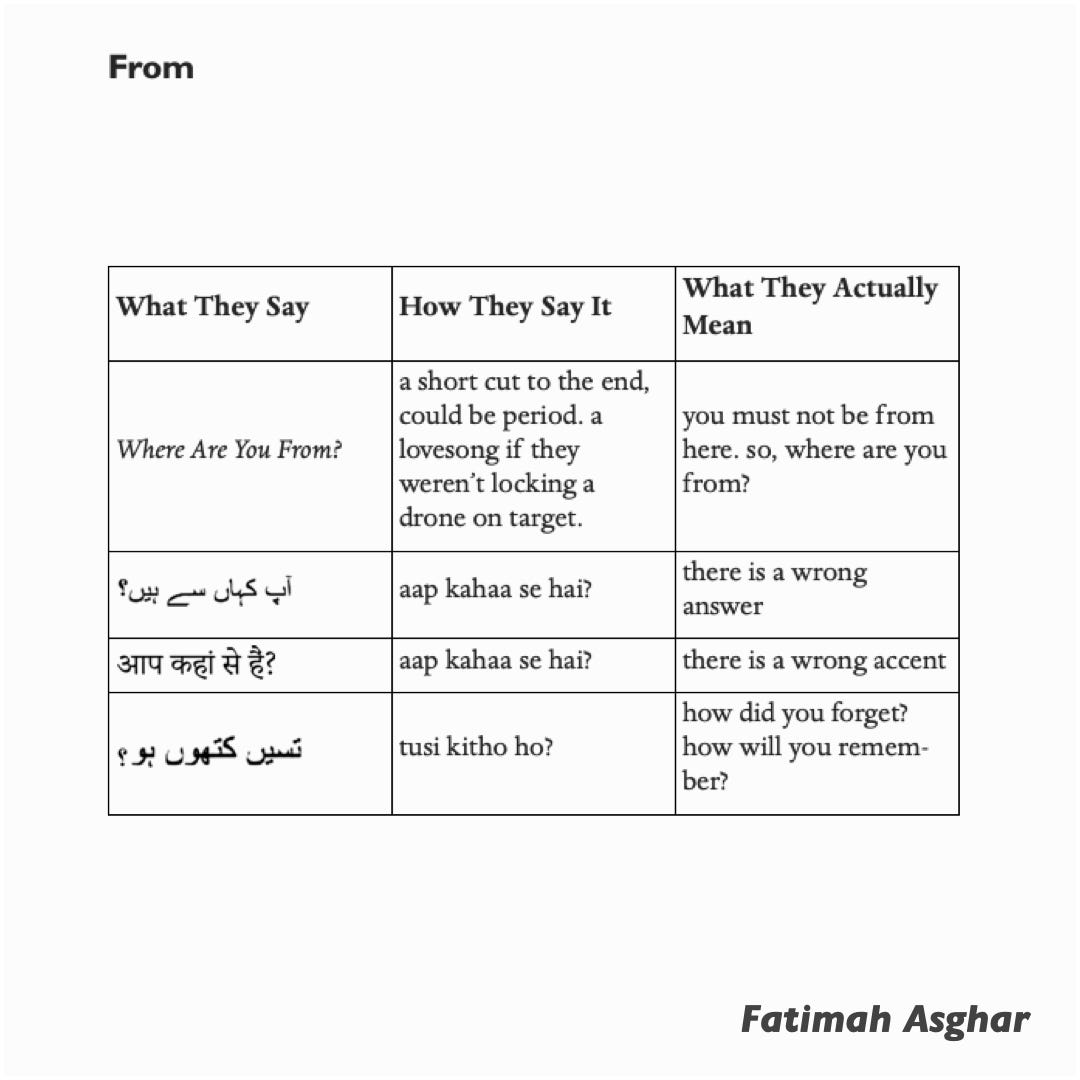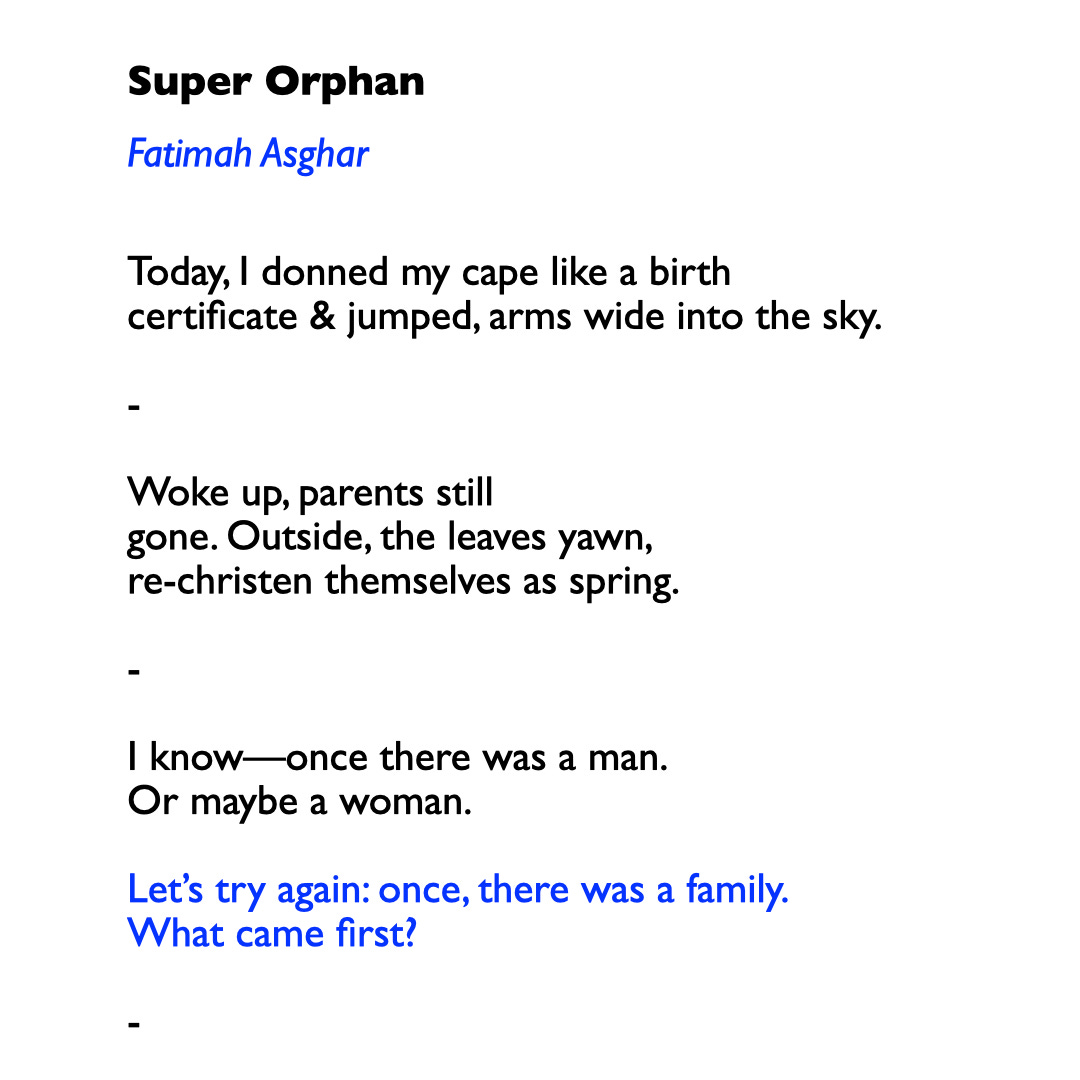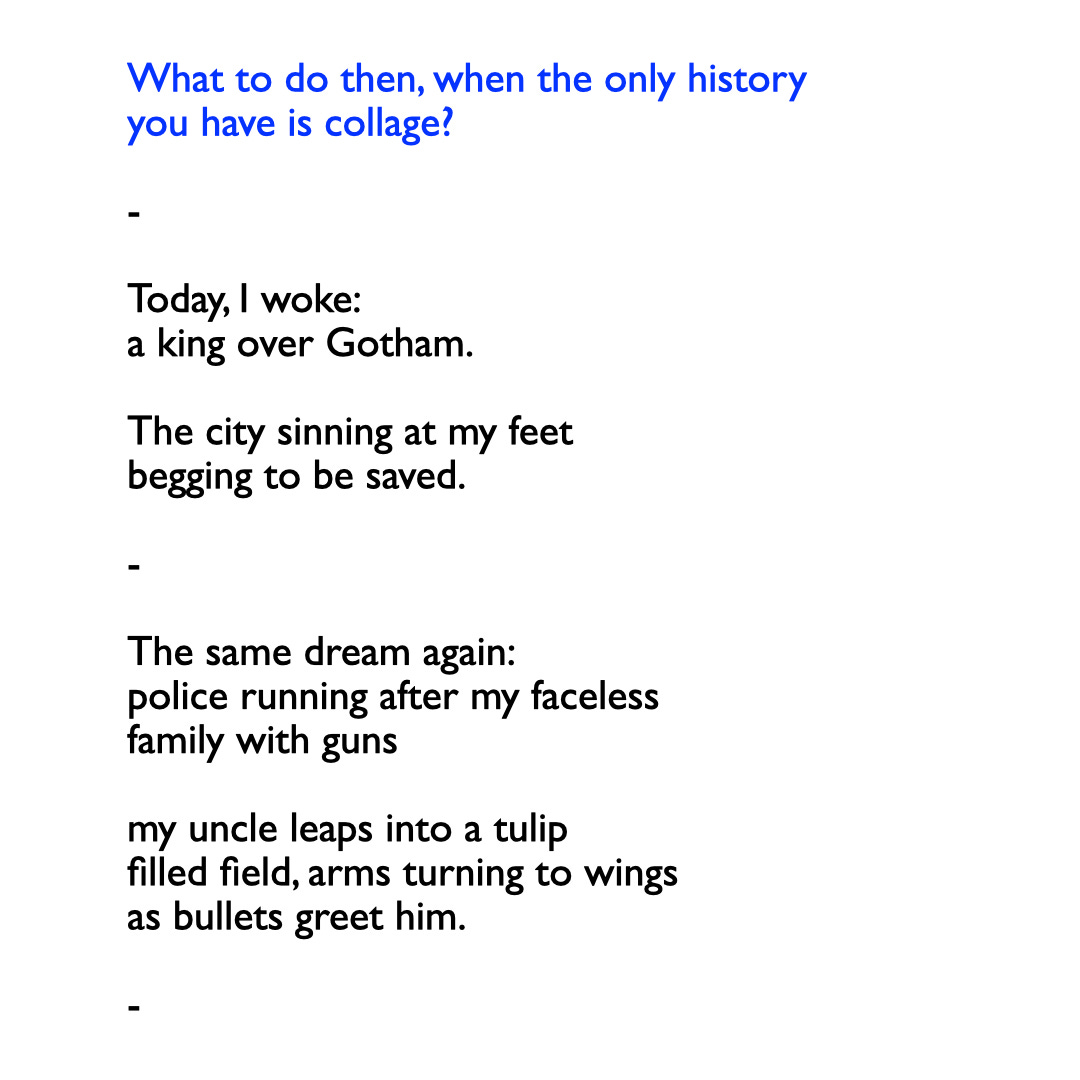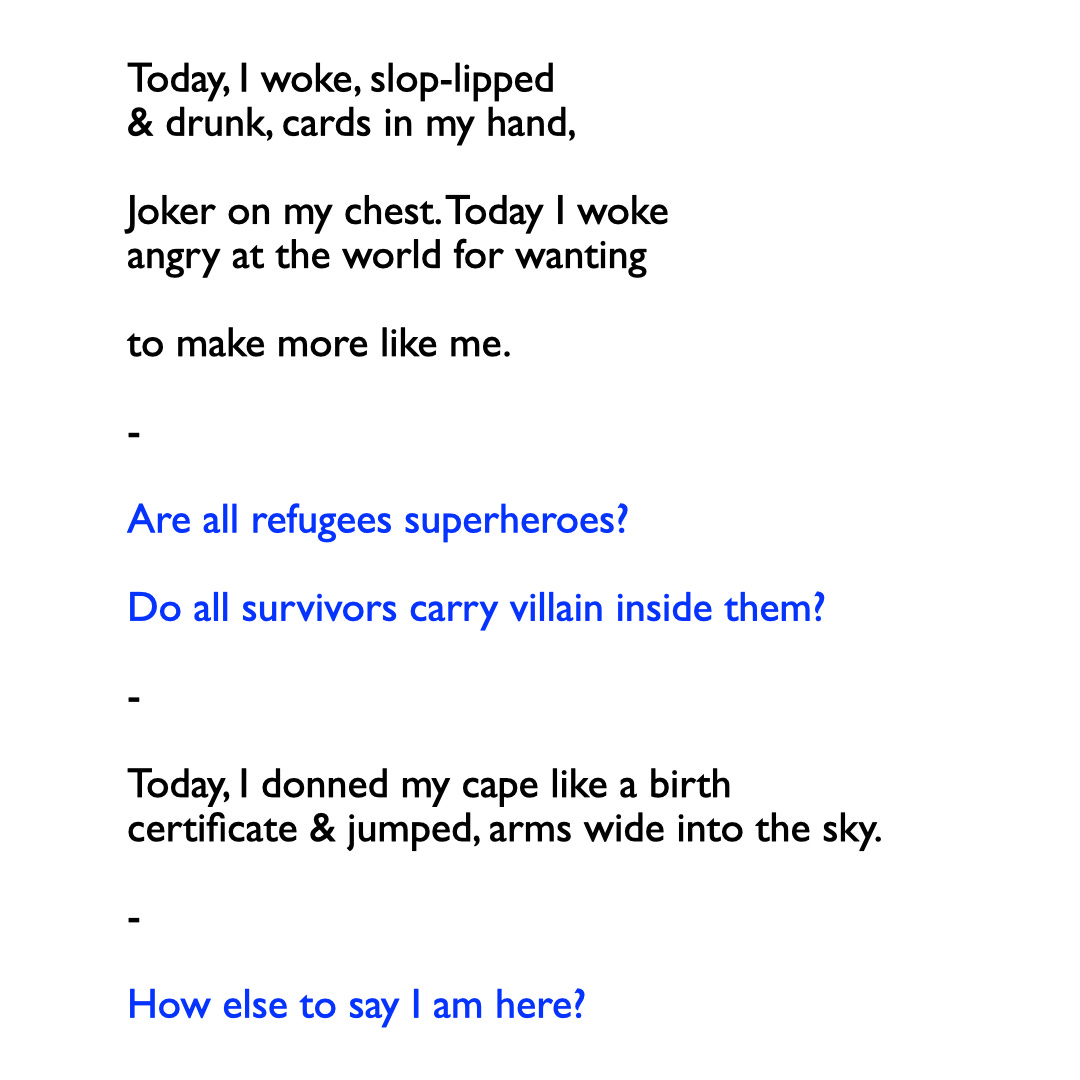Fatimah Asghar’s poetry fissures into existence with the pulsating presence of a red flower from within the parched earth of blatant discrimination and predatory communities. The poem that opens this post is a neat matrix of some of her major concerns as a poet, and the disruptive power of her verse. Hers is a celebration of identity that explores a schizoid relationship between the ‘us’ and ‘them’ of her world. The collection from which this poem is drawn - If They Come For Us - is a collage of her own experiences as a young Pakistani Muslim woman in contemporary America (She wears multiple hats including ‘filmmaker, educator, performer, and writer and co-creator of the Emmy nominated web series Brown Girls’).
The poems map diverse thematic concerns, always rooted in individual identity that in its very existence is connected with the universal stain of religion, culture, race and geography. Consider these lines from the poem that gives the collection its name:
“Mashallah I claim them all
my country is made
in my people’s image
if they come for you they
come for me too in the dead
of winter…
…my people I follow you like constellations”
My people. As in the first poem, these lines come to life in the assertion of one’s place in the world, and the joyful celebration of that place that persists, nay embraces, the lacerations of violence; violence that cannot be erased easily, violence that continues in myriad forms. The questions she throws at the reader are jarring and real, buffeted by allusions to acts of terror, both covert and direct, that have maimed the lives of a marginalised community. What does it mean to live in a world where your very presence is seen as threatening? How to navigate a place that sees you as stranger? How to laugh, how to love, in the presence of those who seek to kill you, and negate your existence?
She talks about tradition, and myth, belonging and sexuality, her tone jumping between alternating strands of vulnerability, fearlessness and humour. Asghar’s writing is far from apology or rationalisation, she does not seek solutions. Rather, one hears through the foliage of her innovative verse, a resounding rhythm that beats out an anthem - I’m here, I’m here, I’m here.
If you like what you read, do consider ‘buying me a coffee’
Note: Those, not in India, who’d like to support the work I do at Poetly, do write to me - poetly@pm.me.
Spread the word, do forward this to your loved ones. Subscribe if you are seeing this anywhere else, other than your inbox.






